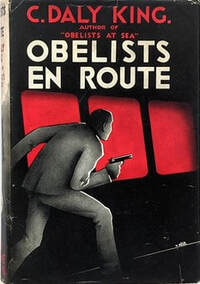
But an en route autopsy reveals that Hodges didn’t die by drowning and may have had a heart attack on or near the pool prior to an early morning swim. No poison is detected in the dead man’s system. As a police detective wonders whether the banker’s death was due to an accident, an illness, suicide, or something more sinister, a dangerous bout of gunplay involving Hodges’ secretary, his daughter, and a potential son-in-law points to murderous intentions.
Obelists en Route improves greatly on the formula American psychologist Charles Daly King employed for his nautical predecessor and début detective novel, 1932’s Obelists at Sea. The critical change is this: instead of drafting a quartet of psychologists to interview suspects and investigate the crime (with a passive ship’s captain acting as baffled referee), this train-set mystery appoints and stays with one capable and active policeman. Lieutenant Michael Lord assumes the role of sleuth, and the story is all the better for it. While I wasn’t sure whom to follow as leader at Sea – and in whom to place confidence, if anyone – there is no such problem en Route. Additionally, the murder mystery seems cleaner and the scenario doesn’t evoke quite the disbelief that is generated by the previous story’s plotline and events.
It is true that we are still comfortably traveling the terrain of Crime Fictionland, and the central mystery – was the financier murdered without a mark on his body, and if so, how and by whom? – is a suitable and enjoyable puzzle for the genre. King plots and writes his murder mystery well, and the trainbound investigation has a lot of period charm. (In later paragraphs I explore King's literary Achilles’ heel.) And true to American form, the author adds in almost as much gangster-like gunfire here as he featured in Obelists at Sea.
It is also one of those stories from mystery fiction’s Golden Age that offers some very entertaining anthropology when read more than 80 years later. The eager to please, dialect-sporting “colored” porter James may be an unfortunate characterization (though common for its time in U.S. fiction and film) but other details of the cross-continental rail trip are very instructive. Modern-day comforts made me ignorant of the realities of a 1930’s “non-stop” train journey, for example, which would need to switch out locomotive engines as well as conductors. The former would need changing to undergo maintenance and inspection – coal- and oil-burning engines would overheat on a cross-country trek – and the latter would swap as one conductor’s familiar route territory ends and another’s begins.
When he learned that I had acquired a copy of Obelists en Route (thank you yet again, academic interlibrary loan!), my well-read mystery fiction colleague Nick Fuller told me, “Watch out for the economics lecture.” So I thought I was prepared when self-described “technocrat” and argumentative passenger Noah Hall began to engage Sabot Hodges in a heated debate about “the Energy Survey” and “greenback inflation”, a mélange of ideas that continues on for eight pages. Little did I know that this passage was just a preamble, and that it is, surprisingly, Lieutenant Lord who talks about economics for an additional ten pages mid-book (p. 198-208), trying to make sense of “social credit” and “national dividends”!
To say that the crime plot stops during these strange and circuitous conversations is an understatement; they are so inorganic to an otherwise forward-moving mystery that there is little to do other than attend the lectures or skip over them. No diabolically nested clues to the crime or killer's motive are to be found therein. And as on the pages when his psychologist characters take the lectern and explain at length their field of study, the economics dialogue is augmented by multiple footnotes and text citations, in case the besieged reader is interested in learning even more about the subject.
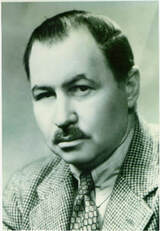 Mystery author and psychologist Charles Daly King.
Mystery author and psychologist Charles Daly King. Fortunately, the digressions are limited and Michael Lord’s investigation into murder on the train (when he isn’t holding forth on economic theory) is focused and engaging. The author’s practice of fair play is indeed scrupulously fair, with a Clue Finder indexing all the clues and revealing page, paragraph, and line where they can be found. I was even able to guess the means of murder of the otherwise undrowned and unmolested Sabot Hodges, and being the dope that I am, I usually don’t tumble to those things. Obelists en Route proves a genuinely agreeable journey, should you manage to find a copy of the book and can afford the ticket. Just watch out for the economics lecture.
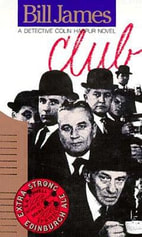
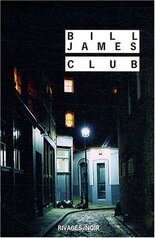
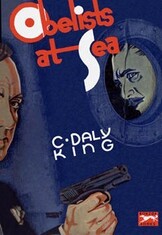
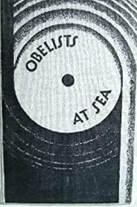
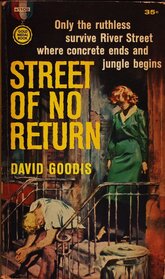
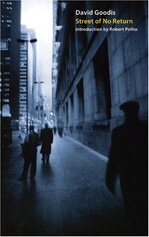
 RSS Feed
RSS Feed